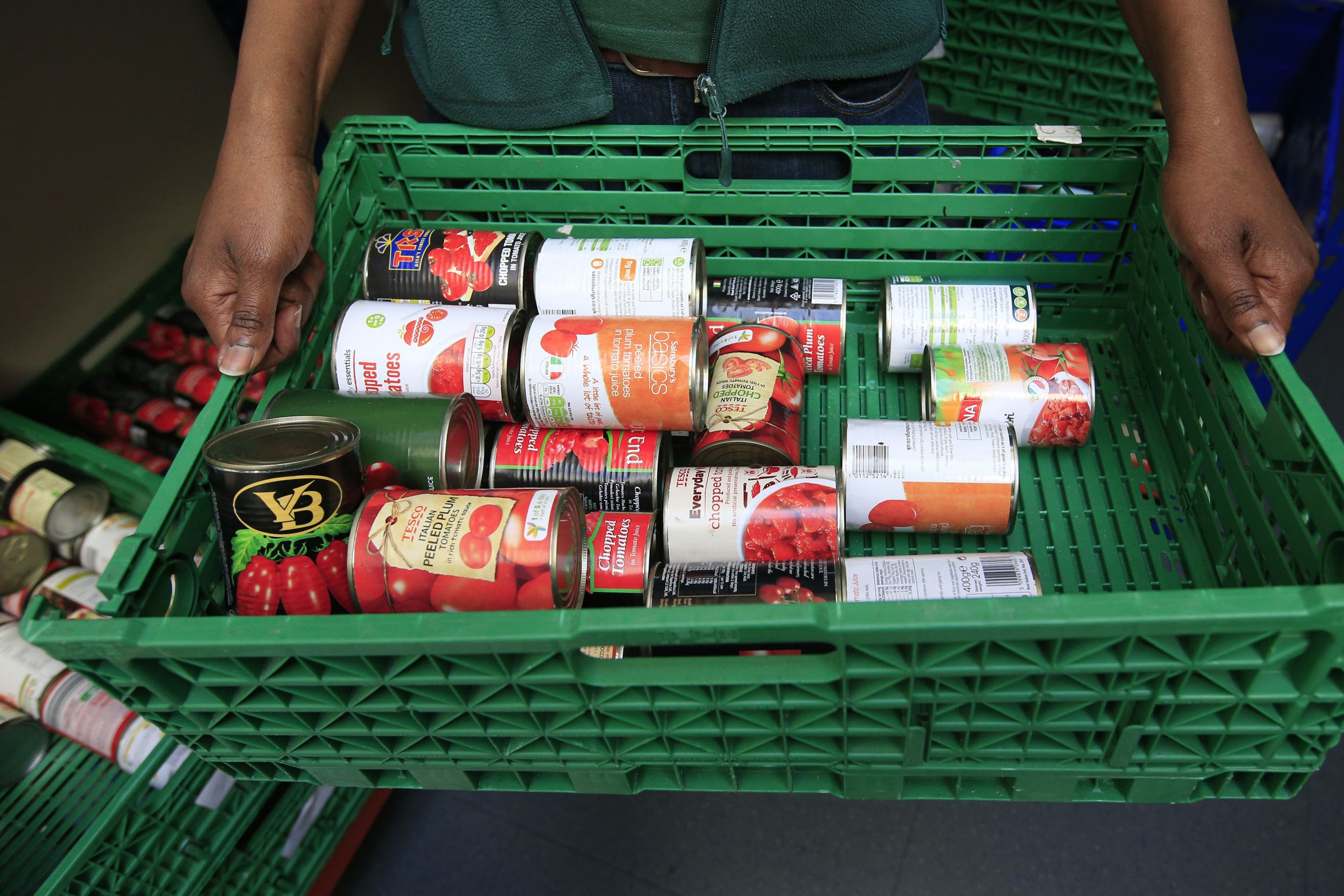Food bank use ‘could be halved over course of next parliament’
The Trussell Trust said it is possible to see ‘a massive reduction’ in need if the requests it has set out are followed.

Your support helps us to tell the story
From reproductive rights to climate change to Big Tech, The Independent is on the ground when the story is developing. Whether it's investigating the financials of Elon Musk's pro-Trump PAC or producing our latest documentary, 'The A Word', which shines a light on the American women fighting for reproductive rights, we know how important it is to parse out the facts from the messaging.
At such a critical moment in US history, we need reporters on the ground. Your donation allows us to keep sending journalists to speak to both sides of the story.
The Independent is trusted by Americans across the entire political spectrum. And unlike many other quality news outlets, we choose not to lock Americans out of our reporting and analysis with paywalls. We believe quality journalism should be available to everyone, paid for by those who can afford it.
Your support makes all the difference.Food bank use could be halved over the course of the next parliament if a new government commits to a series of measures around benefits, debt and social housing, the Trussell Trust said.
The food bank network, which has more than 1,300 operations across the UK, said it is possible to see “a massive reduction” in need if the requests it has set out are followed.
The organisation is calling for political parties to commit in their manifestos to bring in a so-called “essentials guarantee” to ensure Universal Credit covers the costs of basics such as food, household bills and travel costs.
Among its 10 other asks are for debt deductions from social security payments to be made more affordable, a long-term strategy and funding for local crisis support, and new workers’ rights legislation to make employment more secure.
It has also set out a demand, long called-for by housing and homelessness charities, for a firm commitment from the next government to invest in building 90,000 new social homes every year in England.
Asked about a timeline for progress, Helen Barnard, director of policy and research at the trust, said: “We haven’t set out a target but I think we should be aiming, if it’s gone up this much in five years we should try and bring it down over the next five years.
“That would seem to me a reasonable thing to aim at.”
Figures published by the organisation last month showed the number of emergency food parcels handed out across the UK in a single year reached its highest level, at more than three million.
The network said the figures had risen for packages for both adults and children and the total is now almost double that of five years ago.
There were 3,121,404 parcels distributed by food banks in its network up to the end of March, made up of 1,977,308 for adults and 1,144,096 for children.
Ms Barnard said progress will not be “an instant thing”, adding: “I think none of us think this is solved overnight, but if we see these steps over the next few years, I think we really can see a massive reduction.”
Asked whether the halving over the five years of the next parliament was possible, she said: “It’s absolutely possible, it wouldn’t be the whole journey but I think all of us would feel the country would be in a very different state if we had managed to halve the number of people facing this kind of depth of hardship.”
She said setting out their asks felt “particularly important” due to the lack of mention in the leaders’ television debate on Tuesday night of “unprecedentedly high numbers of people across the whole of the UK facing hunger and hardship”.
Ms Barnard added: “They talked about pressure on the health service, they talked about needing to get the economy going, they talked about prospects for young people. But all of those challenges are being driven in part by the fact we have millions of people who are not able to afford the essentials of life we all need to survive.”
Val McKie, a former management consultant who has previously needed the support of food banks after quitting her job to look after her seriously ill husband and struggling to get back on her feet after his death, said the “short-term cost of resolving some of these financial issues is far more than what it’s going to cost us in the long term if we don’t do it”.
The 71-year-old, who lives in the North West, said she does not “fit the stereotypical image (of a food bank user), however I do actually represent the silent poverty that exists”.
While she lives in what she said would be considered an affluent community, she added: “I know how much poverty is there but it’s all behind closed doors”.
Asked for her message to the next prime minister, she said: “To move away from the paradigm that we’re in to create a society that is rooted in care, compassion and understanding and to look to work with people like Trussell, organisations, businesses to come together to create what we want, which is a thriving country.”